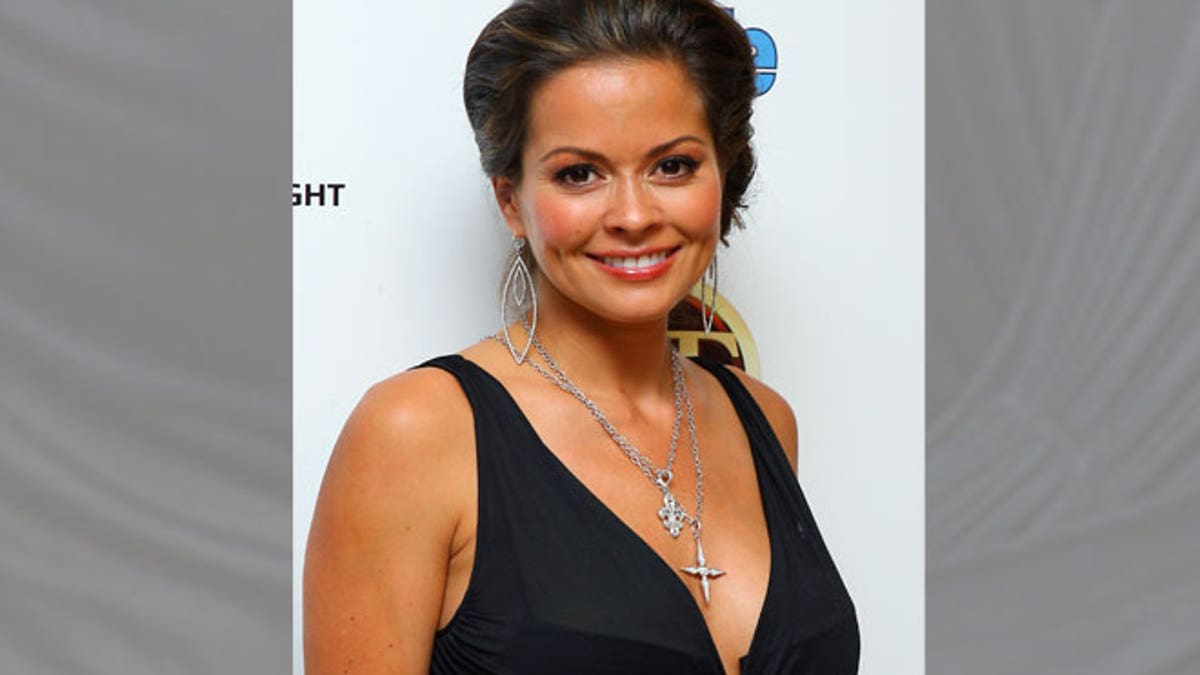
You'd never guess looking at her now, laughing over lunch at an outdoor restaurant in Malibu, Calif., but just four months ago Brooke Burke-Charvet was undergoing treatment for thyroid cancer.
[sidebar]
The only sign of her ordeal? She's wearing a Steri-Strip bandage over the scar on her neck—and she eventually throws a big hat on to protect it from the sun.
The diagnosis was a shock for the 41-year-old Dancing With the Stars co-host. After all, life has been good! Newly married to David Charvet, the mom of four (daughters Neriah, 13, and Sierra, 11, from a previous marriage, and daughter Rain, 6, and son Shaya, 5, with Charvet) was busy juggling her career and blended family when, last spring, her doctor found a lump. Ten biopsies later, she scheduled surgery. She credits a routine checkup with finding her cancer early, and exercise with helping her bounce back (she is now cancer-free).
[pullquote]
Burke-Charvet sat down with Health to explain how she stayed strong through her diagnosis and treatment.
Your cancer was caught as a result of a routine physical, right?
Yep, it was a regular checkup. The reason I went public about it was to spread the word about preventive health. I book that long, annoying, yearly physical, even when I feel perfectly fine. Do we really want to carve out half the day for that? No, but it's so important.
My regular doctor, Robert Huizenga, MD—he's actually a doctor on The Biggest Loser—is very thorough. He noticed an extremely questionable, tiny little thing, and he was like, 'This might be nothing; I still want you to get an ultrasound.' And the nodule was large enough that it required a biopsy. The next doctor said, 'We can't determine if it's benign or malignant, so you can come back in six months and get another ultrasound. Or you can get a second opinion.' Which is what I did. I got a second and a third opinion. I want to say this delicately, but doctors are human beings. In the end, I had 10 biopsies."
What was it like when you first heard you needed surgery?
It just didn't hit me. It was 8 in the morning, and I was standing in the kitchen, and I get the call, and I was like, "OK, I'll call you next week." And he was like, "No, don't call me next week. We need you to have surgery now."
What was your treatment after surgery?
My nodule was encapsulated, the surrounding tissue was good and it wasn't in my lymph nodes. So I didn't have to take radioactive iodine, thank God. After a thyroidectomy, most people have to start taking a synthetic thyroid pill, because your thyroid is gone. But for 10 years I've had Hashimoto's disease, which is when your thyroid is not functioning properly, so I'd already been taking Synthroid.
What was the hardest part of this experience for you?
My family's having to deal with it. My oldest daughter was really worried. My middle daughter, Sierra, was a bit more scientific. And my youngest kids were a little nervous. When you have a medical issue, the whole family goes through it. But thank God it's over. Over and done.
Have you changed anything since your diagnosis?
"I was already eating healthy. But it really confirms how good I feel when I work out. After lying around for a few weeks, I was like, 'Agh! I need to move. I need to sweat and get that adrenaline rush.' It's the best antidepressant. It's like the best medicine in the world."








































